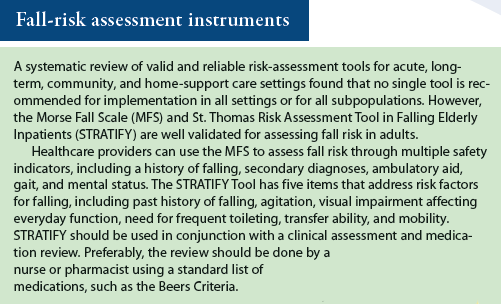3 Easy Facts About Dementia Fall Risk Explained
3 Easy Facts About Dementia Fall Risk Explained
Blog Article
Some Known Questions About Dementia Fall Risk.
Table of ContentsWhat Does Dementia Fall Risk Mean?Get This Report about Dementia Fall RiskOur Dementia Fall Risk DiariesThe 20-Second Trick For Dementia Fall RiskDementia Fall Risk Fundamentals Explained
You could be anxious because you've had a fall before or due to the fact that you've noticed you're beginning to feel unstable on your feet. You could have observed changes to your wellness, or just seem like you're reducing a little. Whatever the reason, it isn't unusual to become careful and lose self-confidence, and this can stop you doing the things you made use of to do and make you feel more isolated.If you have actually had an autumn or you've begun to really feel unsteady, inform your doctor also if you feel fine otherwise. Your medical professional can inspect your equilibrium and the way you walk to see if renovations can be made. They may have the ability to refer you for a falls threat assessment or to the falls avoidance service.
This info can be gotten through meetings with the individual, their caregivers, and a testimonial of their clinical records. Begin by asking the private about their history of drops, consisting of the frequency and scenarios of any kind of current falls. Dementia Fall Risk. Ask about any kind of movement issues they might experience, such as unstable or trouble walking
Conduct a thorough review of the individual's medicines, paying certain focus to those known to boost the threat of falls, such as sedatives or medications that lower blood stress. Figure out if they are taking numerous drugs or if there have been recent modifications in their medicine program. Review the person's home setting for possible hazards that could enhance the risk of falls, such as poor lighting, loose carpets, or absence of grab bars in the washroom.
Not known Facts About Dementia Fall Risk
Guide the individual through the autumn threat evaluation kind, describing each question and taping their reactions properly. Calculate the overall threat score based on the responses provided in the evaluation kind.
Routinely monitor the person's development and reassess their risk of drops as required. Offer continuous education and learning and assistance to promote safety and security and minimize the risk of falls in their day-to-day living activities.
Lots of researches have shown that physical treatment can aid to decrease the threat of falling in adults ages 65 and older. In a new research (that took a look at drops threat in females ages 80 and older), researchers calculated the economic effect of choosing physical treatment to avoid drops, and they discovered that doing so conserves $2,144, including all the covert costs of your time, discomfort, missed life events, and the dollars paid for solutions.
8 Easy Facts About Dementia Fall Risk Shown
Examining your equilibrium, strength, and strolling capability. A home safety assessment. Based on the evaluation results, your physical therapist will design a strategy that is customized to your certain requirements.
Older grownups who have trouble strolling and chatting at the exact same time are at a greater danger of dropping. Dementia Fall Risk. To help raise your safety and security throughout day-to-day tasks, your physical YOURURL.com specialist might make a training program that will test you to maintain standing and strolling while you do one more job. Examples include walking or standing while counting backwards, having a discussion, or carrying a bag of groceries
Your physical specialist additionally can recognize which activities you need to prevent to remain risk-free. Community-based drops prevention programs help people to: Minimize their concern of falling. Set objectives for raising their physical activity. Make their homes more secure. Work out much more to raise their toughness and equilibrium. These programs often are led by volunteer trainers.
3 Simple Techniques For Dementia Fall Risk

Measles, or rubeola, is a very contagious, intense viral infectious illness brought on by the measles infection. Some individuals consider measles as simply a breakout and high temperature that clears in a few days; nevertheless, measles can trigger major wellness difficulties, specifically in children younger than 5-years-old. The most effective protection against measles is the measles, mumps, and rubella (MMR) injection.
Autumns are an usual source of injury amongst older grownups. According to the CDC, in one year alone, fall-related injuries added to over $50 billion in medical expenses a fantastic read (Dementia Fall Risk). In medical facility settings, older grownups are at particularly high risk published here of falls because their lowered movement from being confined to a space or bed.
Not known Facts About Dementia Fall Risk

She has a case history of seizure disorder and high blood pressure. She is obtaining an IV infusion and taking Gabapentin and Lasix. She has no history of falls, her stride is steady, and she voids without concerns. The previous nurse states that she calls for help to the restroom when she requires to go.
Examples of typical fall interventions/measures include: Guaranteeing a patient's essential products are accessible. Putting the individual's bed rails up with the alarm system on. Assisting an individual while they're standing up from bed. Past recognizing just how to use the Johns Hopkins Fall Risk Analysis Tool, it's vital that centers incorporate its use into an extra thorough fall avoidance plan.
Report this page